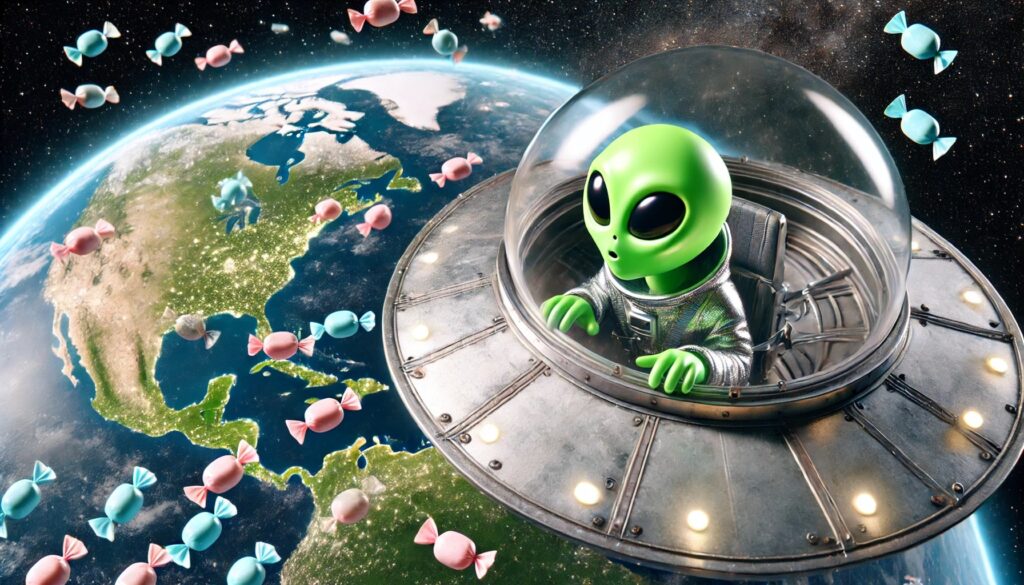I The Wall Street JournalThe report of a reduced increase in the Consumer Price Index is confusing. Or so would an economist who understands the difference between changes in relative prices and changes in the general price level, of all prices combined. (See “Small Rate Hike Opens Door Wider to September Rate Cut,” July 11, 2024.)
If you read this story, the proverbial Martian landing on Earth can imagine that, on this strange planet, all prices are a product of inflation (or deflation), that there is no difference between inflation (or deflation) and changes in relative prices, and that increase in CPI is something inflation. Quoting from the article quoted above:
Housing inflation, which measures rental costs and accounts for about one-third of the CPI, has kept overall prices high.
If there is such a thing as “housing inflation,” we have a puzzle. What happened to some of the “product X inflation” in the other two-thirds of goods and services—including, say, bubble gum inflation? Did that segment also maintain high overall prices? Or does the entire CPI reflect “productivity decline” (as opposed to inflation, as we see during economic depression)? Is the economy witnessing a constant struggle between two evils, inflation in some values and deflation in others? Or maybe some prices go up or down comparatively to each other regardless of what happens to money (or inflation)? However, a counter-economist would ask—as economists began to ask a few centuries ago—what causes all prices to rise together without a change in relative prices? So what does it mean to talk about rising house prices or falling fuel prices?
Another simple way to think about relative values is as follows. Assume that only one price changes in the economy, all other prices remain constant. (This may mean the absence of inflation.) The adjusted price is the adjusted price relative to all other prices (although it is a separate component of different prices). Statistically, if one relative price changes, all other prices also change relative to that. All prices are relative prices compared to other prices. Relative prices change all the time, whether there is inflation, deflation, or neither. These two conditions obviously need to be distinguished, inflation or deflation on the one hand, and certain relative price changes on the other.
Ryan Bourne’s latest book The Price War (Cato Institute, 2024) contains many price discussions besides your humble blogger chapter, “Rising Product Prices Don’t Cause Inflation”). In the history of economic analysis, there is a lot of theory and a lot of evidence that supports the idea that inflation—the increase of all prices together, compared to the relative changes between them—is caused by an increase in available money over and above what economic agents do. the need for their transactions. The price of any good or service as marked and included in the CPI is made up of changes in its relative price again, if there is inflation (or deflation), a change in the general level of prices. Reproduced below is a chart published in one of Ryan’s contributions to the book. The correlation between changes in the money supply and relative inflation supports the view that inflation is a monetary phenomenon.
We shouldn’t be too hard on journalists either The WSJ he is not the only one at fault. Most journalists just echo the noise they hear, including many economists. Perhaps some economists are trying so hard to silence what they know from journalists and professors that the latter end up thinking about meaningless economics: “inflation is the sum of all price increases,” it seems (while inflation, where you are). , is only part of the price change). Some economists seem happy to forget how to think in economics when they leave school and become accountants with big data and sophisticated math software. Some economists in particular have political points to make, usually meaning that the government has gotten things under control and is taking good care of its “citizens”.
It is as if, in today’s economic Newspeak, the words relative prices are being suppressed. Then, nothing is considered but housing inflation, grocery inflation, and bubble gum inflation, which, all combined, produce (total) inflation.
******************************

A Martian obsessed with Earthlings’ ideas of bubble gum inflation
Source link